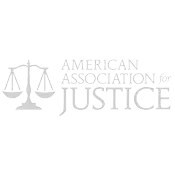Required Elements for Permanency of an Injury to Recover for Future ExpensesWald v. Grainger, 64 So. 3d 1201 (Fla. 2011)
This accident occurred in Duval County Florida where the plaintiff, Howard Wald, sought to recover for damages he sustained when his vehicle was involved in an accident with Sam Gus Felos. Felos admitted fault for the accident. Wald claimed that he had sustained injuries to his neck, back right arm, foot and thigh as a result of the collision. Because Felos admitted that he was at fault for the accident the only issues the court had to decide were causation (whether the accident Felos was at fault for proximately caused Wald’s injuries) and the permanency of Wald’s injuries and damages.
At trial 2 doctors testified, one was Wald’s treating physician, Dr. Tan, who stated that Wald’s injuries to his neck, back and right elbow and thigh were permanent and connected with accident. Felos’ provided contrary testimony from Dr. Hogshead stating that Wald had not sustained permanent injuries to his neck and back from the accident and that Wald’s thigh numbness was giving him the benefit of the doubt that it was related to the accident. Wald requested that the court give the jury instructions to decide that his injuries were permanent. The court granted his request in part with regards to the permanency of Wald’s thigh injury but instructed the jury that they were free to decide what opinions they believed and made no reference to the permanency on any other injury in its jury instruction. The Jury returned with a verdict awarding Wald $1 million in damages.
On appeal the First District Court reversed the final judgment because the trial court erred by instructing the jury to regard Wald’s thigh injury as permanent because the decision of the injury’s permanency was up to the jury to decide and that based on its belief that Dr. Tan’s testimony was unclear on Wald’s thigh injury. The court also stated that the jury was free to reject any testimony regarding permanency including un-contradicted testimony.
The Florida Supreme Court granted review of Wald’s case and found that the First District’s assertions on permanency and the jury’s freedom to reject any undisputed testimony was inaccurate reflection of Florida law. The Supreme Court stated that generally permanency decisions are made by the jury however when there is evidence of injury and causation that allows for no reasonable conclusion to be drawn that could result in a decision for the defendant, a court can direct a jury to decide permanency in favor of the plaintiff. A plaintiff can establish a prima facie case of permanency by providing expert testimony of permanency. When this is done, the defendant bears the burden to present contrary expert testimony to severely contradict the Plaintiff’s expert or provide evidence that conflicts with the plaintiff’s evidence. If the defendant fails to do so the court can direct the jury to decide in favor of permanency.
The court stated that a trial court can direct a verdict in favor of permanency when it first determines whether the plaintiff’s evidence met the standard that supports their claim of permanent injury within a reasonable degree of medical probability. If it does then the court needs to look at the record to determine if any contrary evidence or inferences exists on the issue of permanent injury from which the jury could draw a conclusion in favor of the defendant. The jury can freely weigh the expert opinions, however when the medical evidence that supports permanence is undisputed, unimpeached or cannot be questioned based on contrary evidence then the jury cannot be allowed to simply ignore that evidence and decide in conflict with that evidence. The court concluded that because Wald’s thigh injury was indisputably permanent the trial court properly directed the jury to find for the Wald on that issue.
This case illustrates the standard for permanency and demonstrates a situation where the injured person will more likely than not receive damages for permanent injuries related to an accident. Medical testimony to establish your permanent injury is vital to establish your entitlement for compensation for future damages. If you have sustained an injury that you think is permanent you putting off a medical examination will break your case.
Contact the Fort Lauderdale accident attorneys of Madalon Law for a free consultation if you have questions pertaining to an accident you or a loved one may have been involved in.





